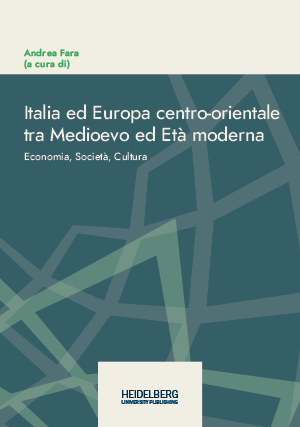How to Cite
License (Chapter)

This work is licensed under a Creative Commons Attribution-ShareAlike 4.0 International License.
Identifiers (Book)
Published
“Hoc donec iasachus durabit”
Il mercato della carne a Dubrovnik (Ragusa) tra XIV e XVI secolo
Abstract The victualling policies are those aspired to look after the consumer, meaning “guarantee of control in relation to the supply, quality and quantity of basic food products” (Guenzi). A star point allaround that, without underestimating a “classic” approach – that is, based only on the granary supply and on the consequent consumption of bread – points out the different realities and the different public authorities’ ways of intervention: wheat is only part of the supply, and what is more, it represents only a small part of it, both in volume and in value (Abad). Observations that have been made for a large capital like Paris, but which also apply to Ragusa, a city that did not eat only wheat, indeed. In fact, from the coeval records, the alimentation of the Ragusa citizens appears to us very rich and varied: fruits and vegetables and, above all, meat, whose importance is attested by the enormous number of documents that regulate Beccaria comunis and the attention towards the prices, constantly kept under control, even during the yasaķ period, i.e. when the Ottoman Empire banned all exports.






